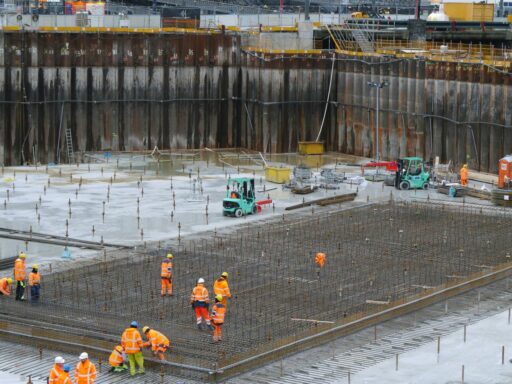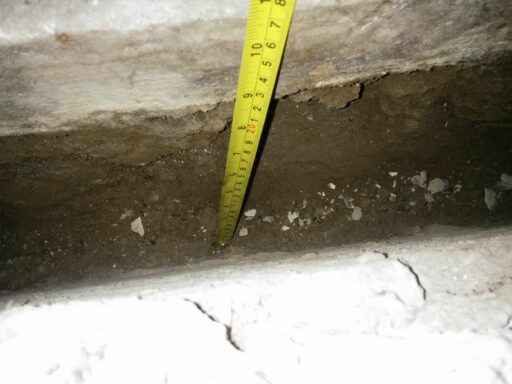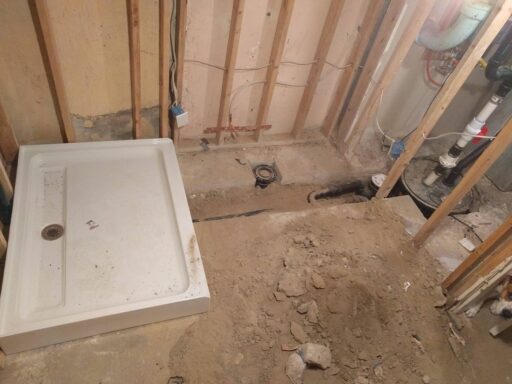Choosing the right concrete driveway contractor is essential to ensure a durable and aesthetically pleasing driveway. Whether you’re considering a repair or a full replacement, understanding your needs and selecting a contractor with the right credentials and experience is crucial. This article provides expert tips on how to assess your driveway’s condition, select a contractor, prepare for the project, manage your budget, and ensure quality workmanship.
Key Takeaways
- Determine if a repair or replacement is necessary by evaluating the condition and longevity of your current driveway.
- Select a contractor with proven experience, proper licensing, insurance, and positive reviews to ensure reliability.
- Discuss important project details such as base material, thickness, timelines, and cleanup expectations beforehand.
- Understand the cost factors, including size, site prep, and materials, and consider DIY demolition to save money.
- Monitor the construction process and review the finished work to ensure the driveway meets your standards for quality.
Understanding Your Driveway’s Needs

Assessing Repair Versus Replacement
When deciding between repairing or replacing your concrete driveway, consider both the extent of the damage and the cost implications. Minor cracks and surface irregularities often warrant repairs, while significant structural issues may necessitate a full replacement. Here’s a quick guide to help you evaluate your options:
- Repair: Suitable for minor, superficial damage.
- Resurface: An option if the foundation is sound but the surface is worn.
- Replace: Recommended when the driveway has extensive damage or structural issues.
It’s crucial to weigh the long-term benefits against the immediate costs. A repair might be less expensive now, but if the driveway requires frequent fixes, replacement could be more economical over time.
Consulting with a professional contractor can provide insights into the most cost-effective and durable solution for your driveway. They can assess the condition and offer an estimate for both repair and replacement, allowing you to make an informed decision based on your specific situation.
Evaluating Current Driveway Conditions
Before deciding whether to repair or replace your driveway, a thorough evaluation of its current condition is essential. Look for signs of significant wear and tear, such as large cracks, potholes, or areas where the concrete has settled or risen, creating tripping hazards. These issues often indicate that a simple repair might not suffice.
- Large cracks or potholes
- Uneven surfaces causing tripping hazards
- Drainage issues leading to water pooling
Consider the age of your driveway and the severity of its condition. If your driveway is over 30 years old and showing extensive damage, replacement might be the most cost-effective solution. On the other hand, minor cosmetic issues could be addressed with repairs or resurfacing.
When evaluating your driveway, it’s crucial to weigh the pros and cons of repairs versus replacement. A professional contractor can provide valuable insight, but it’s also important to be informed about the potential costs and benefits of each option.
Considering Long-Term Solutions
When contemplating the future of your driveway, it’s crucial to consider the long-term implications of the materials and construction methods chosen. A driveway that may seem cost-effective now could lead to higher expenses down the line due to maintenance and potential replacements.
- Durability: Opt for materials known for their longevity and resistance to weather conditions.
- Maintenance: Understand the level of upkeep required to maintain the driveway’s appearance and functionality.
- Warranty: Seek contractors who offer substantial warranties, as this reflects confidence in their work.
It’s not just about the immediate appeal; it’s about ensuring that your investment remains sound over the years, minimizing the need for frequent repairs or complete overhauls.
Finally, consider the environmental impact of your driveway. Materials and practices that promote sustainability can not only extend the life of your driveway but also contribute to a healthier planet. This foresight will serve you well, as a driveway is more than just a path to your garage—it’s a long-term investment in your property.
Selecting the Right Contractor

Verifying Credentials and Experience
When selecting a concrete driveway contractor, verifying their credentials and experience is crucial. Start by asking for a detailed work history, which should include information about past employers, the type of work performed, and the duration of employment. This can give you insight into their level of expertise and stability in the field.
Ensure that the contractor has a valid driver’s license and, if applicable, a Commercial Driver’s License (CDL). This is a basic requirement that reflects their professional preparedness.
Additionally, inquire about their educational background, including any trade school or other specialized training they have completed. It’s also important to confirm that they have passed any necessary criminal background checks and possess all required state and local licenses.
Here are some key questions to ask:
- How many years of experience do you have?
- Are you licensed, bonded, and insured?
- Do you provide a guarantee or warranty on your work?
- Can you provide at least three references?
By thoroughly vetting potential contractors, you can ensure that you’re hiring a professional with a proven track record of quality work and reliability.
Understanding Contractor Ratings and Reviews
When selecting a concrete driveway contractor, ratings and reviews can be a goldmine of information. They provide insights into the contractor’s reliability, quality of work, and customer service. It’s essential to vet the contractors by reading reviews, viewing before and after photos, and considering their years of experience and star rating.
- Look for a consistent pattern of positive feedback across multiple reviews.
- Pay attention to how contractors handle negative reviews, as this can indicate their approach to customer service and problem-solving.
- Check for detailed comments about the contractor’s punctuality, cleanliness, and communication.
Remember, a high star rating alone doesn’t guarantee quality work; it’s the substance behind the ratings that truly matters.
While reviews are subjective, they often reflect the collective experience of past clients. A contractor with a high percentage of recommendations is likely to be a safer bet than one with mixed or negative feedback.
Ensuring Proper Licensing and Insurance
When selecting a concrete driveway contractor, ensuring they have the proper licensing and insurance is crucial. Different states have varying requirements for contractor licensing, so it’s important to verify that the contractor you’re considering meets your local guidelines.
Here are some key points to check:
- The contractor should have passed a criminal background check.
- They must possess the required state and local licenses.
- They should maintain a good reputation, indicated by an average star rating of 3.0 or better if they have reviews.
- Verify that they have the necessary insurance to protect against any accidents or damages during the project.
Remember, a legitimate contractor will have no issue providing proof of their licensing and insurance. This not only protects them but also gives you peace of mind knowing that you’re working with a professional who adheres to industry standards and regulations.
Preparing for Your Driveway Project

Discussing Base Material and Thickness
The foundation of a durable concrete driveway lies in the selection of the right base material and determining the appropriate thickness. The base material should provide stable support and facilitate proper drainage to prevent cracking and heaving. The thickness of your driveway is crucial as it influences the driveway’s ability to withstand the weight of vehicles and resist environmental stresses.
-
Base Material Options:
- Gravel
- Crushed stone
- Recycled concrete
-
Thickness Guidelines:
- Residential driveways: Typically 4-6 inches
- Commercial driveways: Often 6-8 inches or more, depending on anticipated traffic
When discussing options with your contractor, ensure they explain the reasoning behind their material and thickness recommendations. This conversation should align with local building codes and the specific needs of your project.
Remember, a well-constructed base is the key to longevity for your driveway. It’s worth investing time with your contractor to understand the best practices for your area and the type of usage your driveway will endure.
Setting Clear Timelines and Expectations
When embarking on a driveway project, it’s crucial to establish clear timelines and expectations with your contractor. This ensures that both parties are on the same page regarding the project’s duration and milestones. Here are some steps to consider:
- Discuss the project’s start and end dates, and get these in writing.
- Agree on a schedule for specific milestones, such as base preparation, concrete pouring, and finishing touches.
- Understand the factors that might affect the timeline, like weather conditions or material availability.
It’s important to have a buffer in the schedule for unforeseen delays, which can help prevent frustration and rushed work.
Ensure that the contractor provides a detailed timeline that outlines each phase of the project. This will help you monitor progress and hold the contractor accountable. Remember, a well-defined timeline is not just about keeping the project on track; it’s also about managing your expectations and ensuring a smooth workflow from start to finish.
Planning for Site Preparation and Cleanup
Before the concrete is poured, site preparation is crucial to ensure a successful driveway installation. This involves clearing the area of any existing pavers, decks, and grass, which can be a challenging task without the right equipment. It’s often best to leave the breaking up and hauling away of old concrete and asphalt to the professionals, as it is difficult and time-consuming.
When selecting a contractor, consider their ability to handle the entire process, from site preparation to cleanup. A comprehensive service should include excavation, grading, and proper disposal of materials. Here’s a list of services you might require:
- Excavation Service
- Digging Service
- Earthmoving Service
- Trenching Service
- Land Clearing Service
- Grading Service
- Demolition Service
- Drainage Service
Ensure that the contractor you choose has a clear plan for site preparation and cleanup. This will prevent any unexpected delays and additional costs.
Finally, discuss the cleanup process with your contractor. After the project is completed, the site should be left clean and free of debris, ready for you to enjoy your new driveway.
Budgeting and Cost Considerations

Estimating Costs of New Driveways Versus Repairs
When considering a new driveway or repairing an existing one, cost is a significant factor. The average cost to install a concrete driveway is typically between $4 to $8 per square foot, with the total cost for a new driveway ranging from $1,600 to $6,400 on average. In contrast, repair costs can be much lower, starting from about $0.10 to $0.15 per linear foot for minor crack filling, to $6 to $14 per square foot for replacing damaged slabs.
Deciding between a new driveway and repairs isn’t just about immediate costs; it’s also about long-term value and the condition of your current driveway.
The table below provides a quick comparison of estimated costs for new driveways versus repairs:
| Driveway Option | Cost Range per Square Foot | Total Average Cost |
|---|---|---|
| New Driveway | $4 – $8 | $1,600 – $6,400 |
| Repairs | $0.10 – $0.15 (minor cracks) to $6 – $14 (slab replacement) | Varies |
Keep in mind that these costs can vary widely depending on factors such as the size of the driveway, the extent of damage, and your location. Additionally, removing and replacing an existing driveway can incur additional costs, ranging from $1 to $6 per square foot for site preparation and removal of old materials.
Analyzing Price Factors and Hidden Charges
When budgeting for a concrete driveway, it’s crucial to consider not just the upfront costs but also the potential hidden charges that can affect the overall price. These can range from preparation work to aftercare services. To ensure transparency, ask contractors for a detailed breakdown of costs.
- Preparation work (e.g., grading, compacting)
- Material costs (concrete, reinforcement)
- Labor charges
- Finishing services (sealing, texturing)
- Aftercare services (sealing, cleaning)
Remember, the lowest bid may not always equate to the best value. Hidden fees can quickly accumulate, turning what seems like a bargain into an expensive endeavor.
It’s also wise to compare quotes from multiple contractors. This comparison should go beyond the base price per cubic meter or square foot and include all additional services and warranties offered. By doing so, you can avoid surprises and ensure that you’re getting a fair and comprehensive deal.
Saving Money Through DIY Demolition and Disposal
When considering the costs of new driveways versus repairs, homeowners often overlook the potential savings from DIY demolition and disposal. According to Lawn Love, the average cost of concrete removal is $406, plus additional disposal costs. This suggests that taking on the task yourself could be a financially savvy move, provided you have the necessary strength, skills, and time.
Before you decide to proceed with DIY demolition, it’s important to understand the scope of the work involved. Breaking up and hauling away concrete is not only physically demanding but also requires proper equipment and safety precautions. Here’s a quick rundown of what to expect:
- Assessing the area and planning the demolition
- Renting the necessary equipment, such as jackhammers and dumpsters
- Breaking up the concrete into manageable pieces
- Ensuring proper disposal in accordance with local regulations
While hiring professionals for demolition and disposal can be convenient, doing it yourself can lead to significant savings. However, weigh the effort and risks against the potential cost benefits before making a decision.
Remember, the costs can vary based on factors such as job size, site preparation, and accessibility. If you’re unsure about tackling this project on your own, consider consulting with a contractor for advice or partial assistance to ensure safety and efficiency.
Ensuring Quality and Professionalism

Monitoring the Construction Process
Keeping a vigilant eye on the construction process is crucial for ensuring that the project meets your expectations and adheres to quality standards. Regularly visit the site to observe the progress and verify that the work aligns with the agreed-upon specifications. It’s important to establish a communication channel with the project manager or lead contractor to discuss any concerns promptly.
- Check the quality of materials being used
- Observe the professionalism of the crew
- Ensure that safety protocols are being followed
By actively monitoring the construction, you can address potential issues before they escalate, maintaining control over the project’s direction and outcome.
Remember to review the timeline periodically to ensure that the project is on track. Delays can happen, but consistent oversight can help minimize their impact and keep the project moving forward efficiently.
Reviewing the Finished Work
Once your driveway project is completed, it’s crucial to conduct a thorough review of the work. Ensure that the final product meets your expectations and adheres to the agreed-upon specifications. This includes checking for proper drainage, surface uniformity, and the absence of any premature cracks or blemishes.
- Inspect the surface finish for consistency.
- Verify that the edges are straight and the joints are properly sealed.
- Confirm that the driveway slopes away from your home to prevent water accumulation.
Remember, addressing any issues immediately with the contractor can save you from future headaches and additional costs.
Lastly, don’t forget to ask for a detailed invoice that outlines all the work done and materials used. This will be important for your records and any future warranty claims. It’s also a good practice to gather feedback from the construction crew or to check online for testimonials, such as the ‘small’ job satisfaction mentioned in A-1 Concrete Leveling Reviews.
Maintaining Your New or Repaired Driveway
Once your driveway project is completed, maintaining it is crucial to ensure its longevity and appearance. Regular maintenance can significantly extend the life of your driveway and prevent costly repairs down the line. Here are some maintenance tips to keep in mind:
- Regularly clean your driveway to remove dirt, debris, and stains.
- Apply a concrete sealer to protect the surface from weathering and spills.
- Inspect your driveway periodically for cracks or damage, and address them promptly.
- Avoid using deicing chemicals in winter, as they can damage the concrete surface.
Remember, proactive maintenance is key to avoiding larger issues and keeping your driveway in top condition.
For more detailed guidance, consider visiting a reputable website page that features the best contractors in various categories, including those who specialize in driveway maintenance. They can provide valuable insights and services to help you maintain your driveway effectively.
Conclusion
Selecting the right contractor for your concrete driveway project is crucial for ensuring a durable and aesthetically pleasing outcome. Throughout this article, we’ve explored various expert tips, from understanding when to repair versus replace your driveway, to the importance of asking the right questions about experience, licensing, and insurance. Remember to consider factors like the contractor’s use of materials, their reputation in the community, and the transparency of their communication. By taking the time to research and engage with reputable contractors, you can invest confidently in a driveway that enhances your property’s value and curb appeal. Whether you’re in Houston or elsewhere, the principles of due diligence and informed decision-making remain the same. Choose wisely, and your concrete driveway will be a testament to quality craftsmanship and thoughtful planning.
Frequently Asked Questions
Is it better to repair or replace a concrete driveway?
The decision to repair or replace a concrete driveway depends on several factors, including the extent of the damage, the age of the driveway, and cost considerations. Minor cracks and wear can often be repaired, but extensive damage may warrant a full replacement for long-term durability and aesthetics.
What questions should I ask a concrete contractor before hiring them?
When hiring a concrete contractor, ask about their experience, whether they are licensed, bonded, and insured, the type of base material they use, the thickness of the concrete they pour, and if they have worker’s compensation for their employees.
What are the typical costs associated with installing a new concrete driveway?
Concrete contractors typically charge between $6 to $14 per square foot for a new driveway. Factors affecting cost include job size, site preparation, base material, accessibility, location, finish, and thickness. Additional costs may arise from the removal of existing structures.
Can I save money by doing any part of the driveway project myself?
Homeowners can often save money by removing and disposing of existing pavers, decks, and grass themselves. However, breaking up and hauling away concrete and asphalt is labor-intensive and may be more efficiently handled by professionals with the proper equipment.
How do I ensure the quality of work when installing a new driveway?
To ensure quality, monitor the construction process, check the contractor’s credentials and past work, and review the finished work carefully. Make sure to discuss the project details upfront and maintain clear communication throughout the project.
What should I consider when planning for my driveway replacement or repair?
Consider the long-term durability and maintenance of the driveway, the quality of materials used, the contractor’s expertise, and the overall design. Plan for site preparation, cleanup, and ensure that the project timeline and expectations are clearly set with the contractor.



